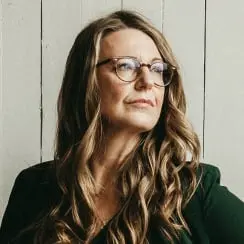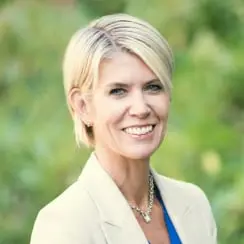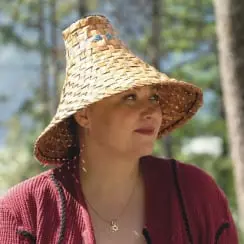 | 1 LU | HSW |
 | 1 LU | HSW |
Date / Time: October 31, 2025 | 8:30 – 9:30 am
Room: 162-163
Audience: Architects, Engineers, Educators, Facility Personnel, Contractors / Suppliers / Manufacturers, Consultants
Call to Action:
Abstract: In an era where educational environments are increasingly recognized as pivotal in shaping future generations, this session delves into the transformative power of sustainable modular educational design in creating spaces that nurture learning, community, and environmental stewardship. Drawing from innovative examples in the West Vancouver School District, British Columbia, we explore how diving below the surface of conventional design practices can unlock hidden potential at the intersection of equity, inclusion, and sustainability. By examining the underlying structures and patterns that influence educational spaces, we’ll demonstrate how a systems thinking approach can lead to more effective interventions and lasting change. We’ll explore how this approach addresses the complexities of implementing widespread cultural shifts that resonate throughout the entire educational ecosystem. Participants will discover how biophilic elements and sustainable building practices like modular systems can both accelerate and elevate educational infrastructure, creating sustainable child care and learning environments that enhance children’s social, cognitive, and emotional development, while providing cost predictability for clients and building operators. The learning spaces explored in this session transcend traditional definitions of schools or childcare facilities. Instead, they emerge as dynamic connection points for the community, flexible enough to adapt to evolving needs and built to support tomorrow's learners. By the end of this session, participants will gain insights into creating educational environments that not only meet current demands but also pave the way for a more equitable, inclusive, and sustainable future for all.
Learning Objectives:
Design of Educational Facilities
Aligning Educational, & Community vision with design to support a regenerative mindset for a sustainable and future ready Educational Facility.

Bridgitte is dedicated to creating better learning environments through the use of beautifully designed and high-quality education furniture made from sustainable materials, emphasizing environmental awareness and stewardship. Through her work, Bridgitte is shifting the paradigm of learning space design toward a more collaborative, intentional, and student-centric model. On the Board of the Green Schools National Network, Bridgitte supports creating broad-based initiatives and successful strategies aimed at fostering healthy, sustainable schools across the United States.

Sandra-Lynn is an educational leader driving systemic change for inclusivity in public education. Her educational background includes a Doctorate in Educational Leadership & Policy and she’s been a school administrator and district leader for the past 20 years. Her work focuses on the importance of human connection – the value of nourishing both the heart and the mind as the foundation of successful healthy human development, community connections, professional learning, student engagement and equitable access to educational excellence for all.

Rory’s dedication to Indigenous design and her unwavering community-first approach exemplify the spirit of true leadership as a dedicated advocate for many important issues, including Indigenous housing and affordable childcare. NUQO Modular is a female-led, proudly Indigenous construction company recognized for its sustainable and culturally grounded approach to building. Committed to community empowerment, NUQO partners with top architects and partners to deliver high-quality, environmentally responsible, and culturally significant childcare and other building solutions.